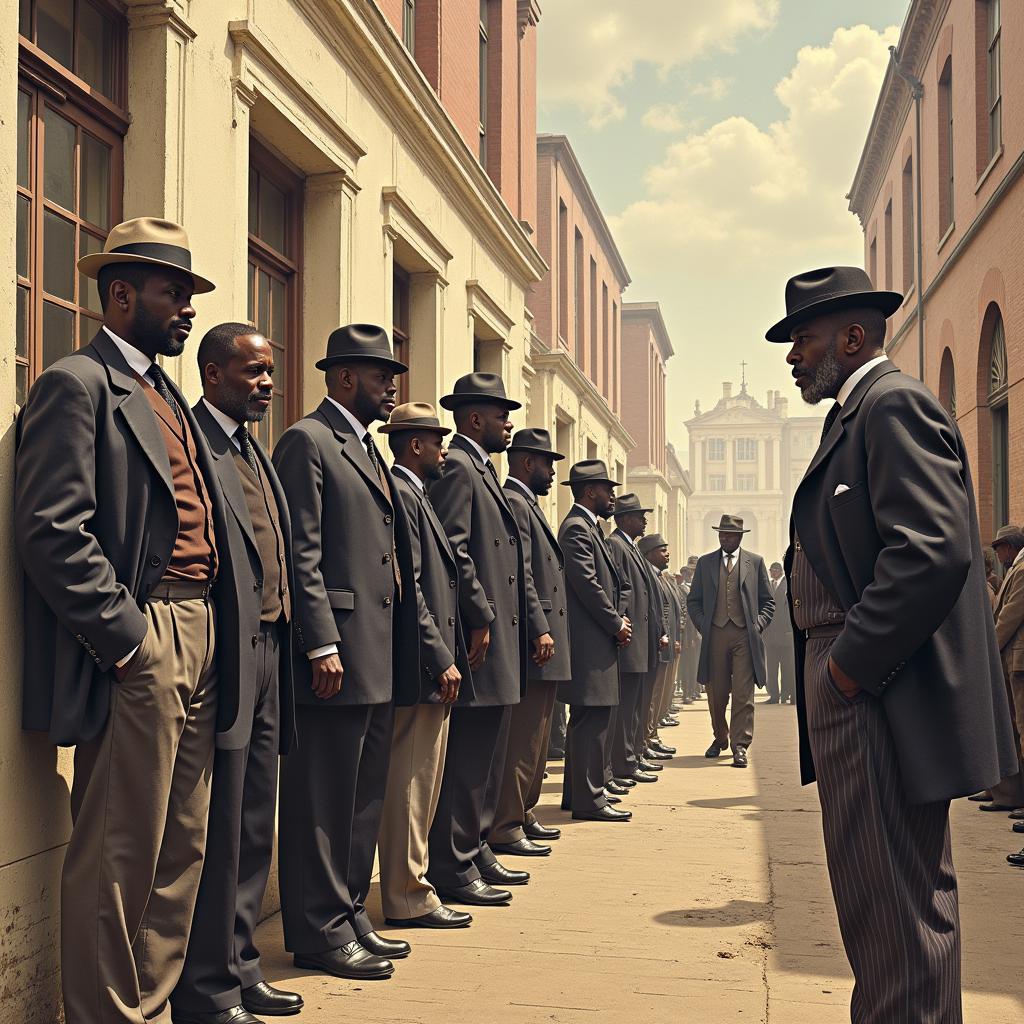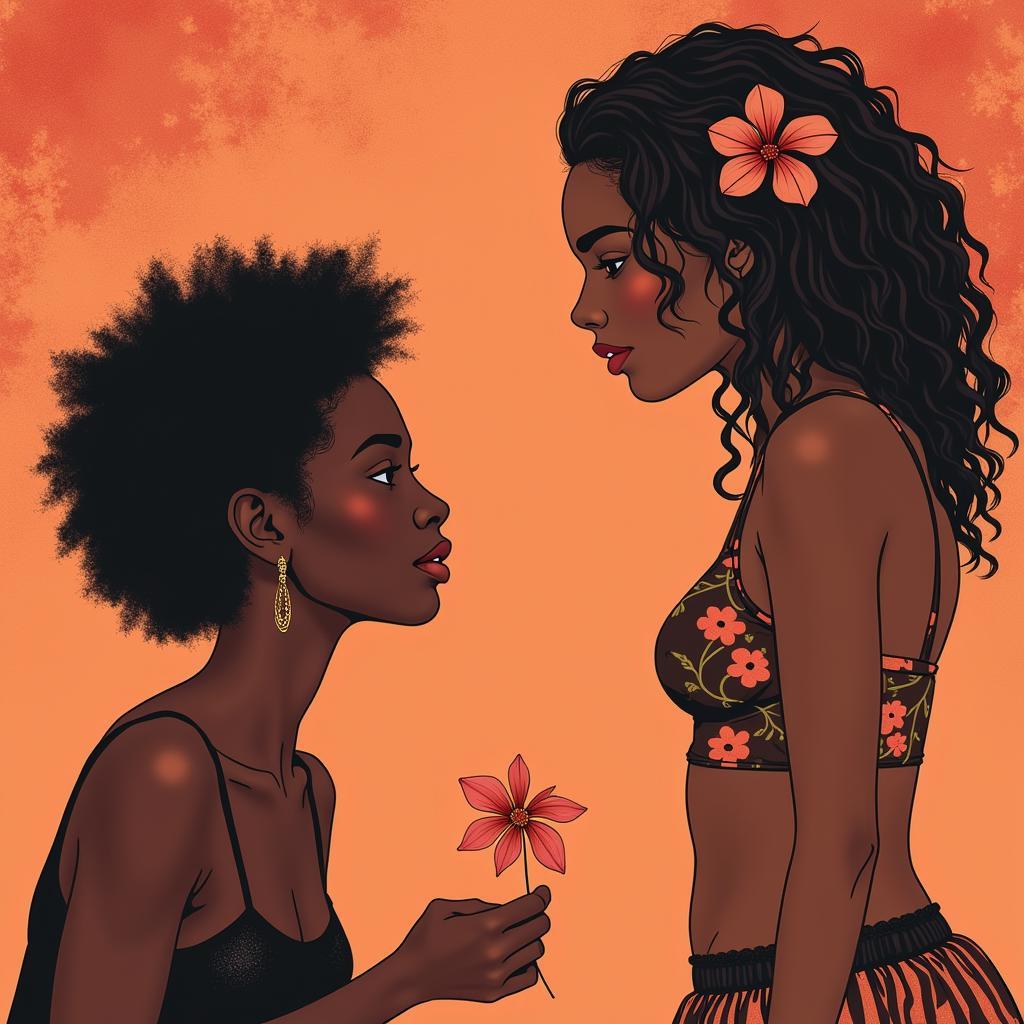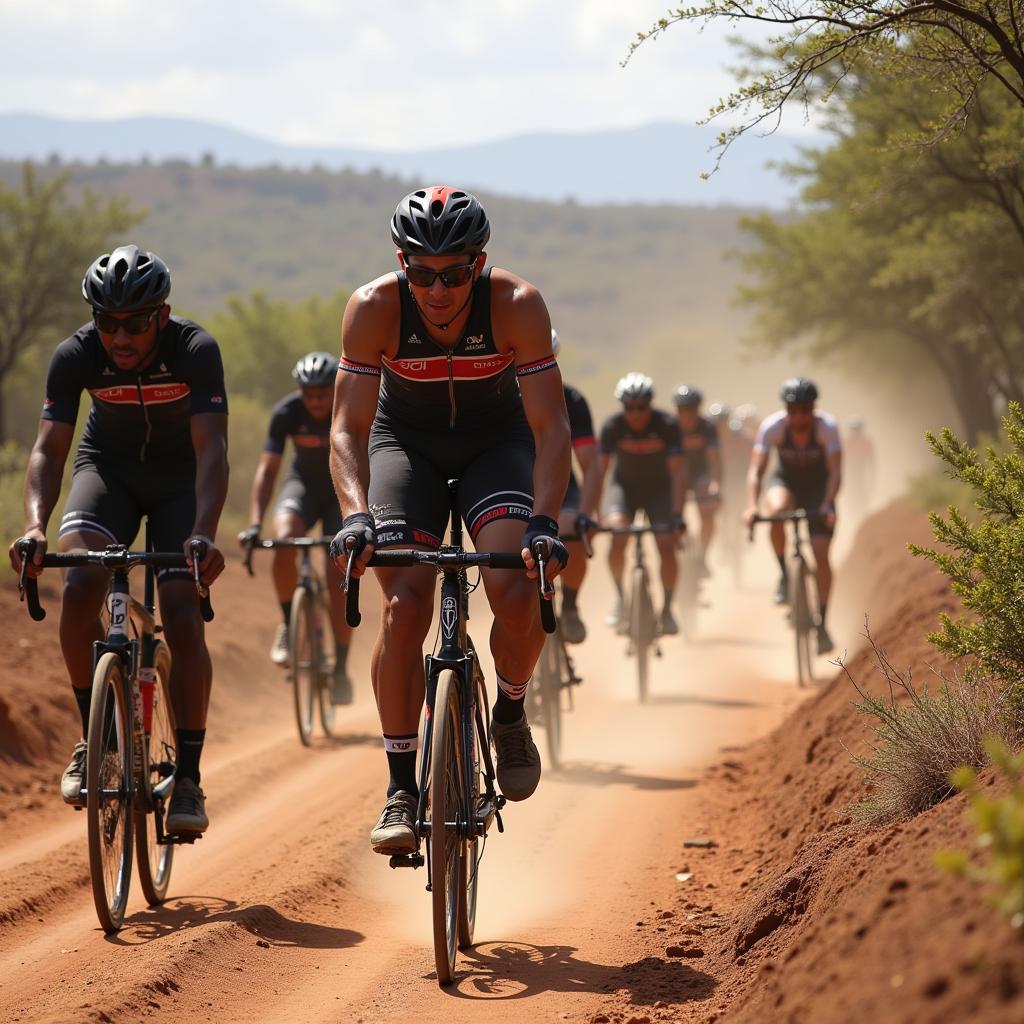The Horrific Reality of African Girls Beaten to Get Married
The phrase “African Girl Beaten To Get Married” paints a grim and unfortunately accurate picture of a reality for too many young girls across the continent. While not representative of all African cultures or marriage traditions, forced marriage often intersects with violence, robbing girls of their childhood, education, and basic human rights. This practice, though illegal in many countries, persists due to deeply ingrained cultural norms, poverty, and gender inequality.
Unpacking the Complexity of Forced Marriage in Africa
It’s crucial to approach this sensitive topic with nuance. Africa is a vast continent, home to 54 countries with diverse cultures, traditions, and beliefs. To say all African societies condone or practice forced marriage is a harmful generalization. However, the issue persists across various regions and communities, demanding attention and action.
What Fuels Forced Marriage?
Several factors contribute to the perpetuation of this harmful practice:
- Poverty: Families struggling financially may see their daughters as commodities, using marriage as a means to alleviate financial burdens through bride price.
- Lack of Education: Girls with limited access to education are more vulnerable to forced marriage, as their options for a different future are restricted.
- Cultural Norms: Deeply rooted patriarchal systems often view women and girls as property, with their value tied to marriage and childbearing.
- Preserving Family Honor: In some cultures, a girl’s virginity before marriage is equated with family honor, leading families to force marriage at a young age to avoid “shame.”
- Lack of Legal Protection: Weak law enforcement and a lack of awareness about existing laws protecting girls from forced marriage contribute to its continuity.
The Devastating Impact on Girls
The consequences of forcing girls into marriage are devastating and far-reaching:
- Loss of Education: Girls forced into marriage are often pulled out of school, denying them opportunities for personal and professional growth.
- Early Pregnancy and Health Risks: Child marriage often leads to early and closely spaced pregnancies, posing severe health risks for both the young mother and child.
- Domestic Violence: Power imbalances inherent in forced marriages increase the risk of physical, emotional, and sexual violence against the young bride.
- Mental Health: Girls forced into marriage are highly susceptible to depression, anxiety, PTSD, and other mental health issues.
- Perpetuation of the Cycle: Girls forced into marriage are more likely to have their own daughters subjected to the same fate, perpetuating the cycle of poverty and abuse.
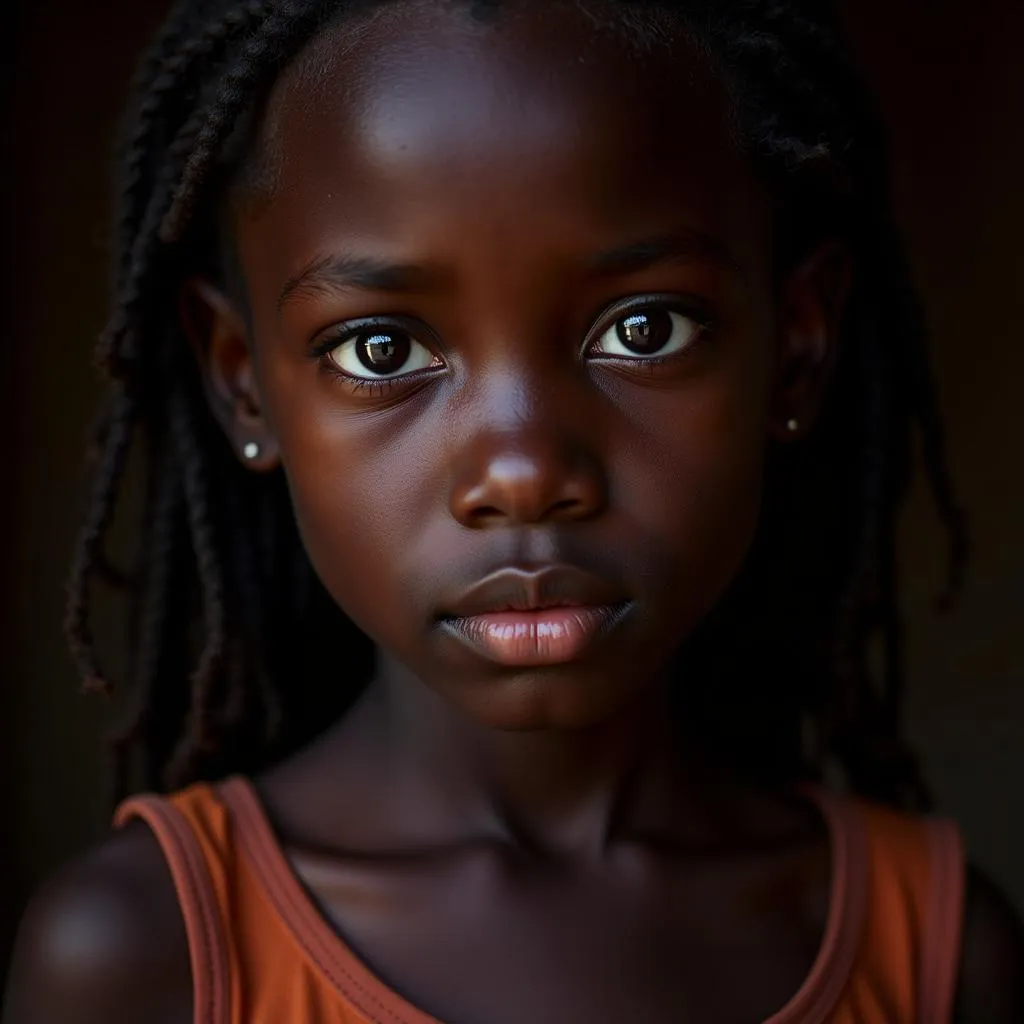 Young African girl with a forlorn expression, highlighting the emotional toll of forced marriage
Young African girl with a forlorn expression, highlighting the emotional toll of forced marriage
Combating Forced Marriage: A Call to Action
Eradicating forced marriage requires a multi-faceted approach:
- Empowering Girls Through Education: Providing girls with access to quality education equips them with knowledge, skills, and opportunities to break free from the cycle of poverty and make informed choices about their lives.
- Economic Empowerment: Creating economic opportunities for women and families can help reduce poverty-driven forced marriages.
- Legal Reform and Enforcement: Strengthening laws against child marriage and ensuring effective implementation is crucial.
- Community Engagement: Engaging with religious and community leaders, families, and men and boys is essential for shifting harmful social norms.
- Support for Survivors: Providing comprehensive support services, including healthcare, counseling, and legal aid, to survivors of forced marriage is vital for their recovery and empowerment.
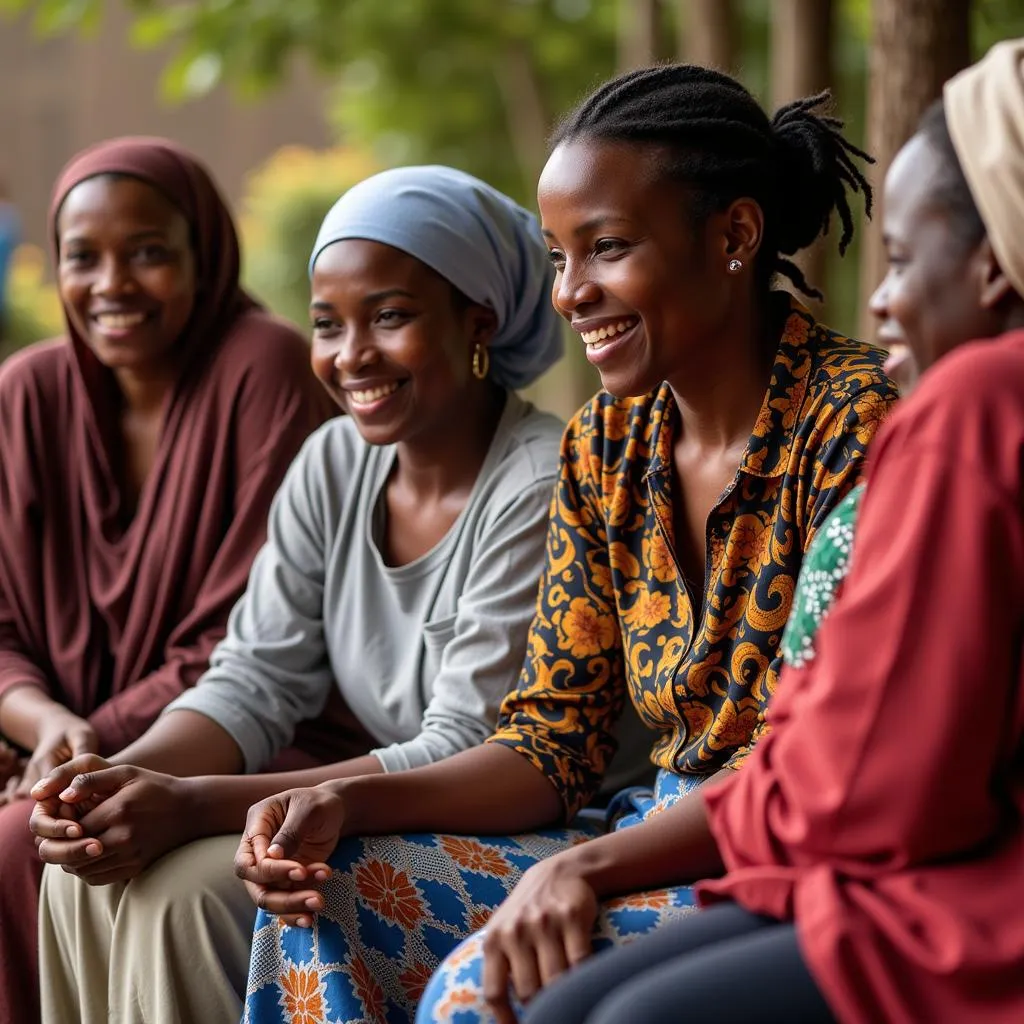 Group of African women engaged in a lively discussion, symbolizing community engagement in addressing forced marriage
Group of African women engaged in a lively discussion, symbolizing community engagement in addressing forced marriage
Conclusion: Breaking the Cycle, Upholding Human Rights
The practice of beating African girls to get them married is a gross violation of human rights. While rooted in complex cultural and socio-economic factors, it is never acceptable. By understanding the issue’s complexities and working collaboratively, we can empower girls, change harmful norms, and create a future where every girl can reach her full potential, free from violence and coercion.
If you need any support or assistance regarding forced marriage, please contact us. We are here to help 24/7. You can reach us at +255768904061, email us at kaka.mag@gmail.com, or visit us at Mbarali DC Mawindi, Kangaga, Tanzania.
